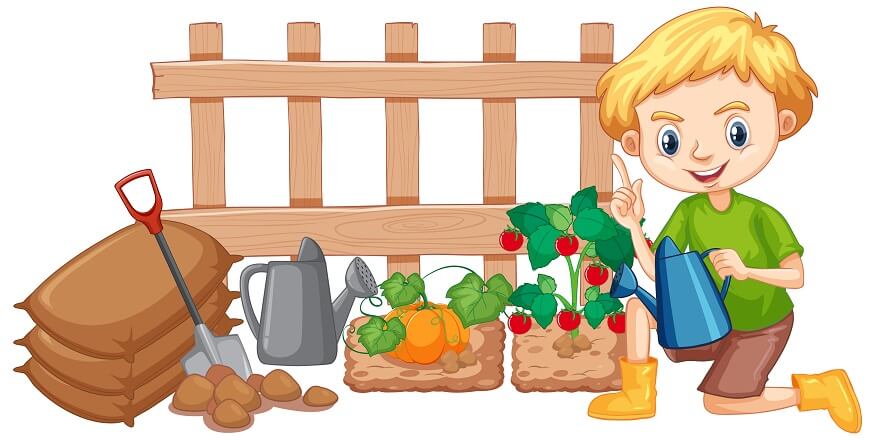Playing board games, reading books, and playing video games are just some of the activities we like to keep our children occupied with. However, if you want your child to spend time outdoors in nature as well as pick up some life skills along the way then introducing them to farming is the way forward. Farming as a way of life is a lot more than just planting and harvesting crops. As they experience the joy of getting their hands dirty and the satisfaction of growing their food, and the importance of sustainability, a farming experience can shape a child’s life in many ways.
Here are some reasons why every child should experience farming and how to make it happen.
Physical and mental health benefits
Farming involves activities such as digging, planting, and harvesting which keeps them physically active and healthy. Just being outdoors, surrounded by nature helps them reduce their stress and anxiety levels.
Farming also provides children with a sense of achievement and pride. Seeing their hard work in the form of a harvest boosts their self-confidence. Children learn to work hard every day, rain or shine and take responsibility for the crops. They learn the importance of being accountable for their actions and the consequences.
Social and emotional development
Farming helps children appreciate the value of food and healthy eating. They develop a certain level of respect for food and the importance of sustainable agricultural practices in ensuring food production. As they learn how to plant and harvest crops, look after animals, and maintain farm equipment they pick up important life skills such as patience, empathy, creativity, problem-solving, etc. They become more self-reliant, resilient and independent, enabling them to tackle real-world problems.
Farming develops a sense of community and the importance of working together towards a common goal such as harvesting a certain crop, growing a vegetable garden or raising livestock. They learn to collaborate with different stakeholders while picking up social skills such as communication, teamwork and leadership.
Enhanced Environmental awareness
Farming gives children hands-on experience in caring for the environment. They get practical exposure to learning about soil health, water conservation, the use of fertilizers and the self-sustainability that exists in nature. It is a chance for children to connect with nature and understand how different plants, animals and insects work together to create a healthy ecosystem. How can parents make farming experiences a reality for their children? Here are some farming tips for kids: Find a farm near you that offers tours or farm stays: Finding open spaces and farmlands is a luxury in this current day and age. Many farms across the country offer farm tours and even farm stays. Spend a few weekends at the farm stays where children can experience farm life first-hand. You can gather a group of children and curate a group visit to a farm which is home to trees, crops, animals and birds in their natural habitat. Children can pick vegetables, and learn organic farming. Bee farms are yet another go-to place for children to understand how honey gets made.
Start a backyard farm: Even if you do not have access to a farm, you can start small by growing vegetables or raising chickens in your backyard. These simple acts provide children with a good introduction to farming principles. Join a community farm: Many communities have established gardens where residents and city farming enthusiasts come together to grow fruits and vegetables. This is an excellent way to teach children about the joys of growing plants while also meeting new people. Community farms serve as places where children can learn by doing hands-on work and experimentation.
Go fruit-picking: Make use of the weekends to take children out on a visit to a farm in the lap of nature and spend time at fruit-picking farms or orchards. Children can forage, pick wild fruits and flowers and fill their bags with fruits such as papaya, guava, mangoes, chikoo, litchi, areca nut, and rose apples.
Grow school farms: When exposed to farming activities at school students tend to start eating more fruits and vegetables at home. They are physically more active, eat less junk food and perform better at school. Schools can partner with local farms or farmers to identify an area for a small farm. They can invite them to educate children on various farming practices and get student volunteers as “cub farmers” to grow local produce on the school’s farmland.
Also Read: Instilling the best social-emotional values in children, in a natural way
Enrol your child with EuroSchool today.









